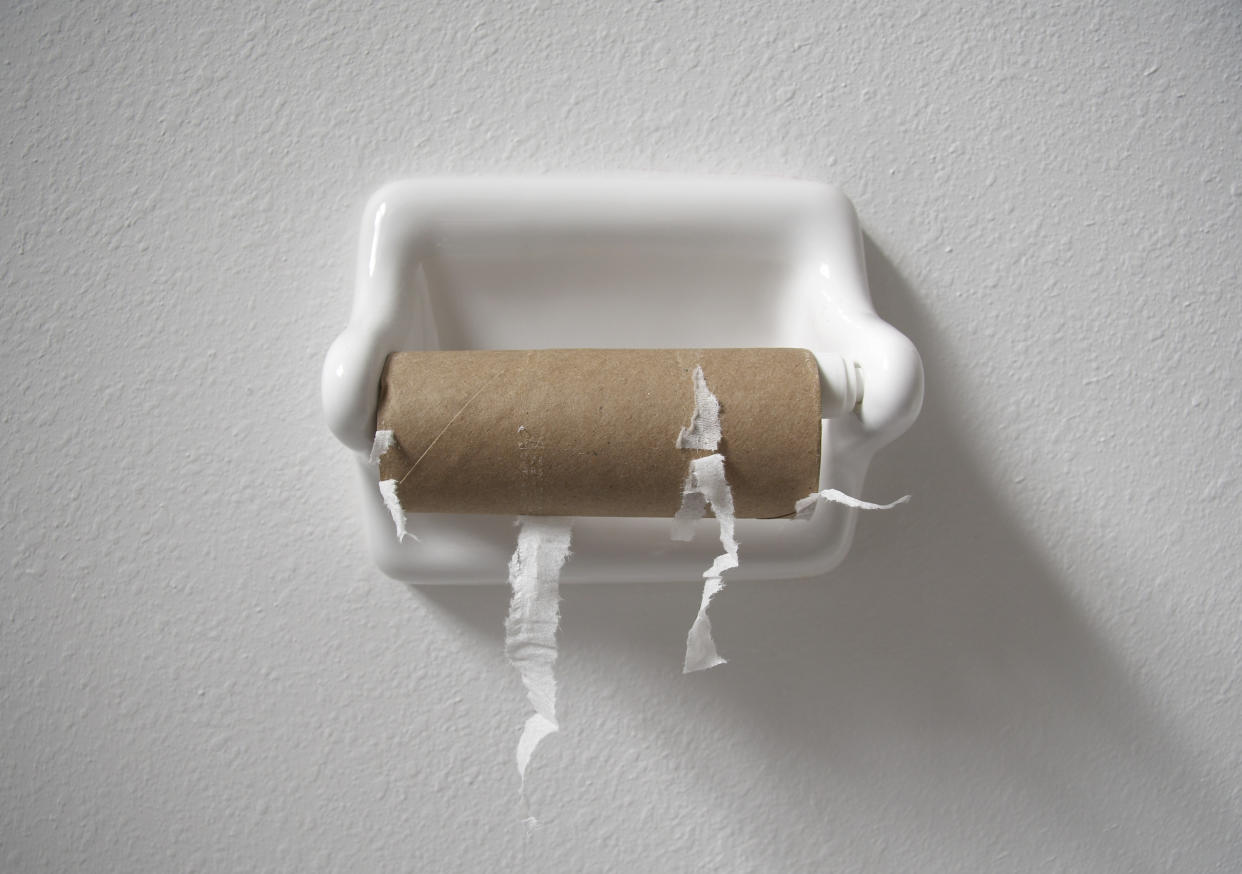Hoarding toilet paper amid the coronavirus: Why are people doing it?

People are crowding grocery stores to stockpile food and supplies during the coronavirus pandemic that’s infected 11,000 people in the United States. But one item remains bizarrely elusive: toilet paper.
Although the White House said "...It is unnecessary for the American public to hoard daily essentials” and the National Grocers Association told ABC News that products like toilet paper “may be more limited in terms of availability but are flowing through the supply chain," both brick-and-mortar and online retailers are routinely cleaned out of the product.
The demand has forced stores into capping purchases at a certain number (with employees supervising the chaos) and restaurants like The Beacon Tap in Chicago, which pivoted to curbside take-out and delivery, to now offer toilet paper as a customer incentive. Police in Newport, Ore., have even scolded residents who call 911 to report toilet paper shortages. “It’s hard to believe that we even have to post this,” read a Facebook post by the department. Meanwhile, sales of bidets, which cleanse with sprayed water, are reportedly increasing.
Bethany Marshall, PhD., a psychotherapist in Los Angeles, tells Yahoo Lifestyle the toilet paper phenomenon can be explained by the theory of social contagion — what the American Psychological Association (APA) calls “the spread of behaviors, attitudes, and affect through crowds and other types of social aggregates from one member to another.”
“Social contagion is a necessary part of survival, and feeling threatened triggers our primitive instincts,” she explains. “Seeing people stock up on toilet paper changes the perception of how necessary it is. When you mimic that behavior, you experience a psychological reward that you’ve done something right.”
A lack of control during distressed times may cause people to hold tightly to the familiar. “Using toilet paper is meeting one’s basic needs — babies need wipes and toilet paper is a household staple,” she says.
And the pandemic might have placed a higher value on toilet paper due to media images. “You see people on television with large packages of toilet paper sticking out of their grocery carts,” says Marshall. “As the biggest item in the store, they can’t be concealed in a bag so they’ve become a visual symbol of preparedness.”
Vaile Wright, PhD, the director of clinical research and quality at the APA, says that unlike choosing a different brand name or product-substitution for other favorite items, there’s no real replacement for actual toilet paper.
And though hoarding toilet paper could feel satisfying in the face of uncertainty, it’s not effective. “Buying all the toilet paper won’t stop the virus from infecting and you might be taking resources from others,” she tells Yahoo Lifestyle. “It’s not that people get selfish during emergencies, but they look inward when motivated by fear — it’s distressing to see cleaned-out store aisles.”
Wright says if the coronavirus has offered any future lessons thus far, it’s to prepare reasonably for emergencies. “However, if we go overboard, it’s not helpful psychologically.”
For the latest news on the evolving coronavirus outbreak, follow along here. According to experts, people over 60 and those who are immunocompromised continue to be the most at risk. If you have questions, please reference the CDC and WHO’s resource guides.
Glossary of public health terms to stay informed
Want daily pop culture news delivered to your inbox? Sign up here for Yahoo Entertainment & Lifestyle's newsletter.
